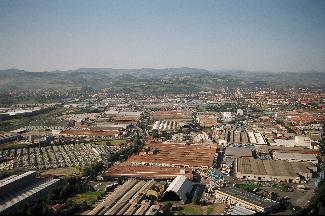
Memorandum on the current situation facing the Italian ceramic industry
In response to the soaring costs of natural gas and other production factors, the Italian ceramic manufacturers have done everything possible to maintain their relations with the market and with their commercial partners at a time of strong domestic and international demand. For this purpose, they have chosen to continue operating in accordance with their business strategies, despite this having a severe impact on their profitability.
In mid-March, when gas prices reached a record level of €3.5 per cubic metre, 30 factories (out of the more than 220 present in Italy) stopped production and furlough agreements were stipulated for 4,000 workers, in many cases valid until the end of the year. In almost all cases, however, the production stoppages were limited to the few days of peak gas prices and did not result in any interruption in commercial activities. Companies continued to ship finished products by drawing from their existing warehouse stocks. Moreover, the use of the furlough scheme was limited to the actual duration of production stoppages as required by Italian law.
The invasion of Ukraine has exacerbated all these problems as well as disrupting supplies of Ukrainian clays, which account for 25% of all the raw materials used by the Italian ceramic industry. The last ships to dock in the port of Ravenna prior to the outbreak of the conflict provided sufficient raw materials for the sector for next weeks, to continue to operate while searching for feasible alternatives.
In view of their geographical origin and the severe damage inflicted on port infrastructures, the Italian ceramic manufacturers realized immediately that it would be impossible to use these raw materials for years to come. The Italian companies are therefore doing everything possible to diversify their supply chains, both by increasing the quantities ordered from their existing suppliers elsewhere in Europe and by searching for new sources in other regions. The raw material suppliers, in many cases multinationals, are willing to meet this demand, and in many cases have already signed contracts for previously unplanned shipments of replacement materials. However, to be able to use raw materials sourced from different quarries, it will be necessary to modify the ceramic mixes. This is something that the engineers at Italian ceramic companies are perfectly capable of doing while maintaining the technical qualities for which Italian ceramic products are renowned.
With this memorandum we wish to confirm the Italian ceramic industry’s overriding commitment to serving its domestic and international customers and, despite the current difficulties, to strengthening the relationships it has built up with its partners through many years of joint efforts.